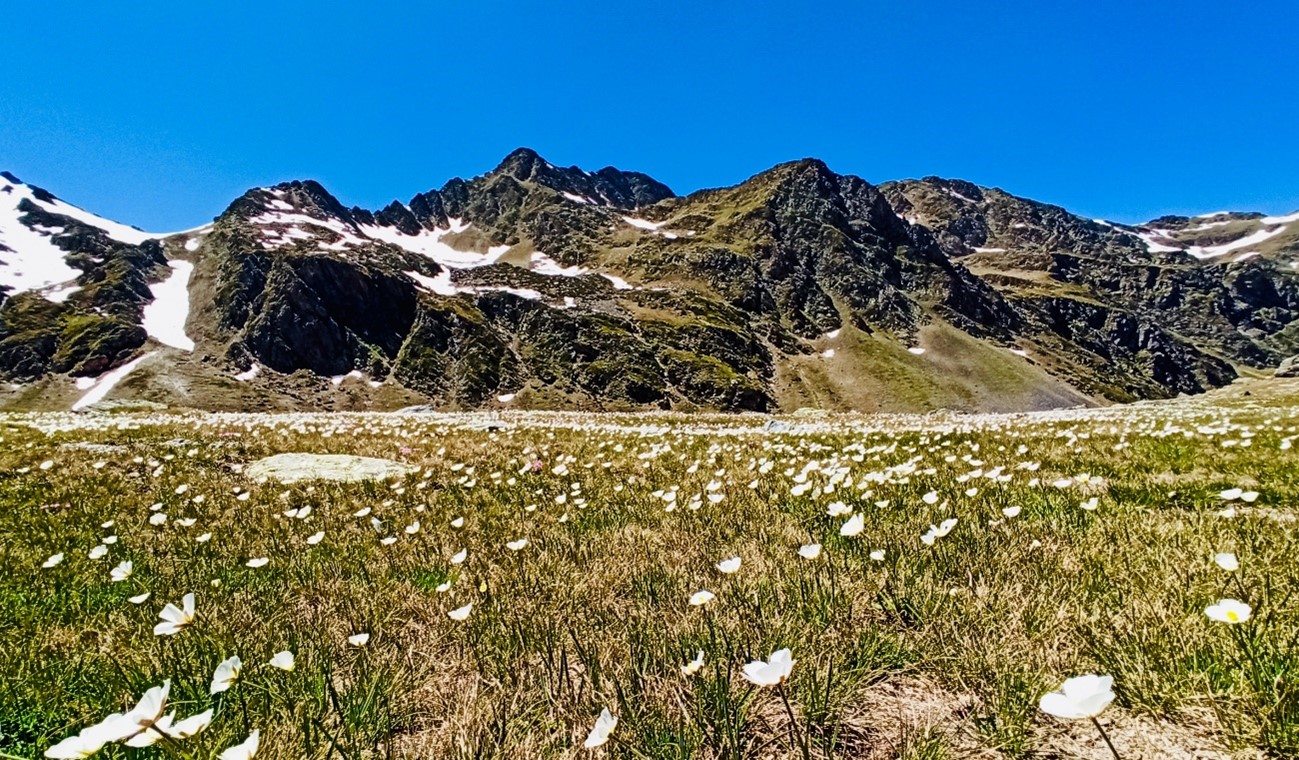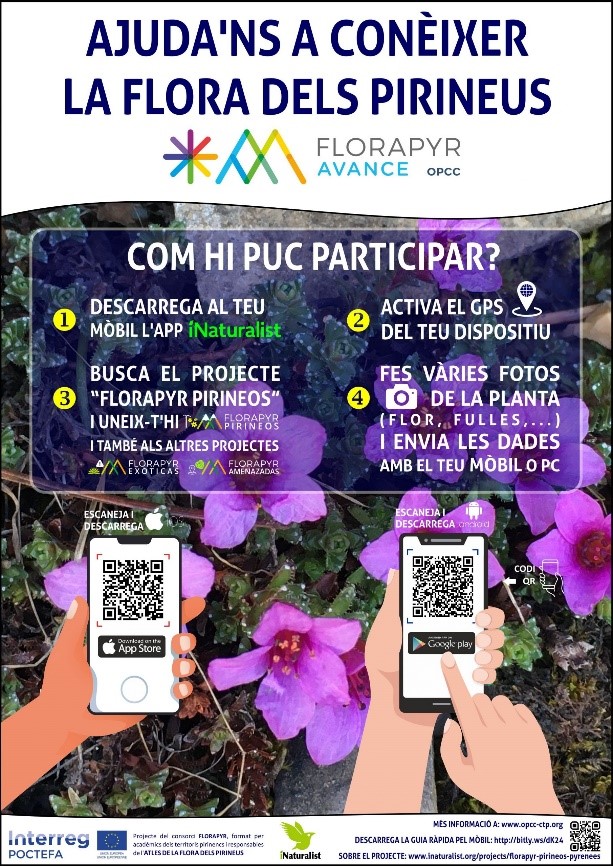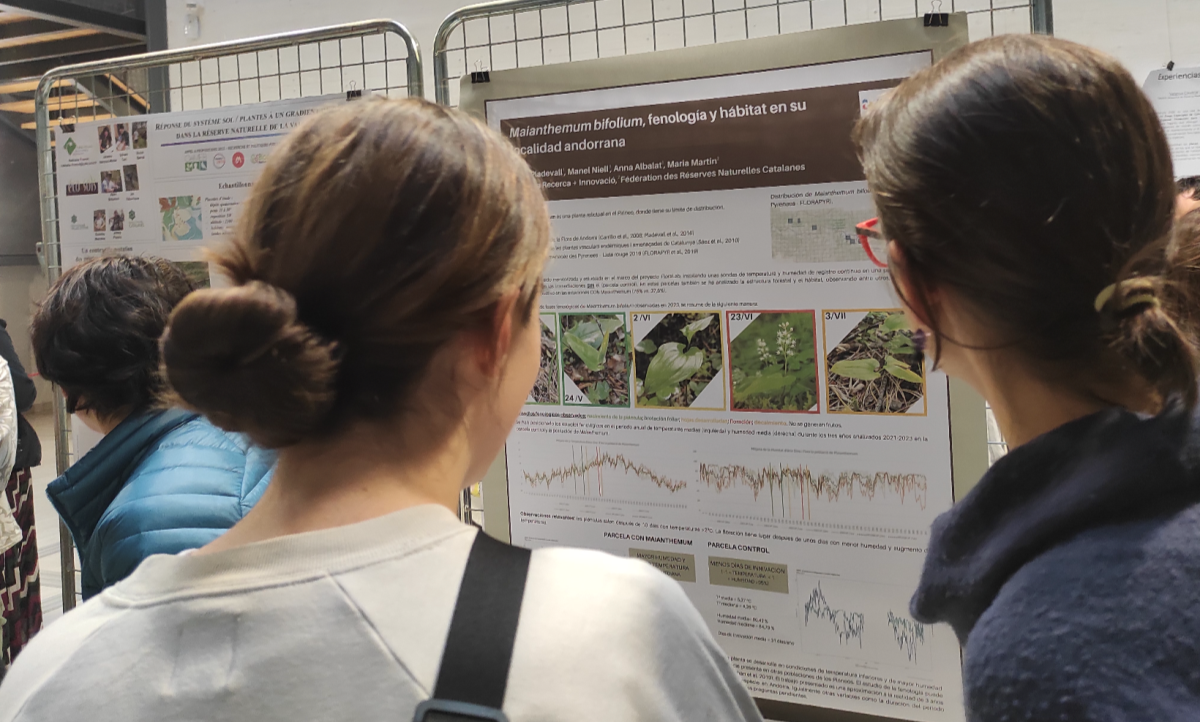Projects


According to reports on climate change, mountain areas are particularly vulnerable in terms of biodiversity. Furthermore, there is a lack of information on the specific effects of climate change on the most characteristic flora of the high mountains, due to the difficulty of identifying the factors involved in global change. It is therefore necessary to continue generating data on biodiversity and its evolution, to be able to compare it with other information, but also to monitor biodiversity in the long term.
The FLORAPYR AVANCE project supports the OPCC, maintaining and developing information on flora and monitoring the effects of climate change on biodiversity. The aim of the project, in addition to improving the Atlas of the Flora of the Pyrenees and the knowledge of the flora, is also to help those responsible for making decisions on climate change mitigation or adaptation. It also seeks to inform the public more broadly and give them the opportunity to contribute to collect the information.

The proposed approach is a continuation of the FLORAPYR project (funded by the previous POCTEFA period), with some innovations: incorporating citizen science, incorporating remote sensing techniques and innovative monitoring instruments (drones), as well as expanding information on new topics. (Invasive fungi and flora). Some of the results of the project are expected to be available online through the OPCC geoportal.
The flora of Andorra is very rich considering the size of the country (about 1,600 species). Having an up-to-date and complete knowledge is very important to be able to improve its conservation. This project will allow us to expand our knowledge in a regional biogeographical context and obtain coherent scientific data in communion with the territories adjacent to the Principality. Obtaining scientific results on flora will allow the country’s managers to have up-to-date and modern tools to act for the benefit of flora conservation and to define and prioritize targeted management measures.
The project partnership brings together research centres and public entities in the environmental sector on both sides of the mountain range that are reference bodies on flora, fungi, and vegetation. They will contribute and share their knowledge to ensure a coherent synthesis and analysis of Pyrenean-scale information.
The FLORAPYR AVANCE project is developed under the coordination of the Conservatoire Botanique National des Pyrénées et de Midi-Pyrénées with common objectives to all Pyrenean territories:
- Contribute to the Pyrenean Climate Change Observatory by collecting information and developing knowledge bases on biodiversity and producing references and indicators on the evolution of flora and vegetation, useful for strategies for adaptation. Within this project, for example, the inventory of fungal taxa present in the Pyrenees has begun. In this first phase, a database of fungal records has been started, whether published in scientific articles or field observations made by experts.
- Develop awareness by different types of publics about climate change and biodiversity, through the transfer of knowledge and results.

Citizen collaboration is promoted to identify the flora of the Pyrenees and the non-native flora. The results will identify the potential for invasion of these species and act on them. Citizen participation will be key to covering a greater amount of prospected territory and expanding the information we have on non-native species. Thus, the data obtained could show us potentially invasive species, improve information on the distribution of some rare or uncommon plants, and provide citations of new species that we were not aware were present in the Pyrenees.
This project is funded by the Interreg-POCTEFA program and by the Government of Andorra through the Complementary Grants to the POCTEFA 2014-2020.

 Benjamin Komac
Benjamin Komac Clara Pladevall
Clara Pladevall Manel Niell
Manel Niell
